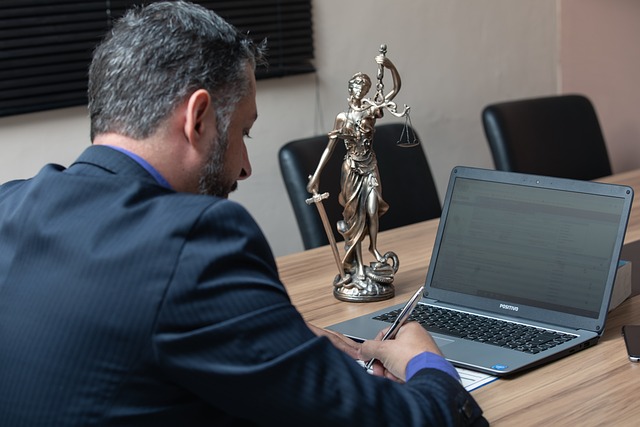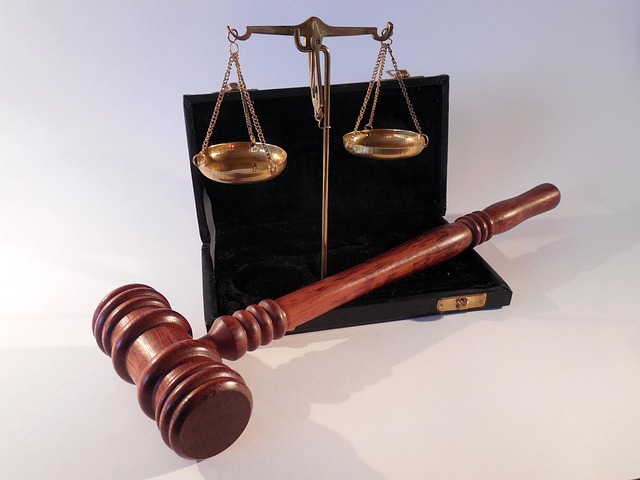Litigation Risk Management is a strategic approach to protect businesses from costly lawsuits by mitigating legal risks throughout the process, from initial risk assessment to post-trial analyses. In criminal trials, Voir Dire is an indispensable process ensuring impartial juries by examining potential jurors' biases and qualifications. This rigorous questioning secures fair and unbiased decision-making, maintaining the integrity of the justice system, especially in complex white-collar cases. Effective risk management, coupled with strategic voir dire, thorough case preparation, legal expertise, and client communication, leads to successful outcomes in jury trials.
In the complex landscape of criminal justice, effective Litigation Risk Management is paramount to ensuring fair and just outcomes. This article provides a comprehensive overview of understanding litigation risk management, with a focus on key strategies like voir dire – a critical process safeguarding justice’s integrity. We explore the importance of voir dire in criminal trials, delving into how it screens potential biases, ensures impartial juries, and ultimately mitigates legal risks during proceedings. By mastering these techniques, legal professionals can navigate complex cases with enhanced confidence and accuracy.
- Understanding Litigation Risk Management: A Comprehensive Overview
- The Role of Voir Dire in Criminal Trials: Protecting the Integrity of Justice
- Effective Strategies for Mitigating Legal Risks During Criminal Proceedings
Understanding Litigation Risk Management: A Comprehensive Overview

Litigation Risk Management involves a strategic approach to mitigate potential legal risks and protect respective businesses from costly lawsuits. It encompasses all stages of the investigative and enforcement process, from initial risk assessment to post-trial analyses. A key component in criminal trials is the importance of Voir Dire, a process that ensures impartial juries by examining potential jurors’ biases and qualifications. This thorough examination plays a pivotal role in achieving extraordinary results, as it helps select fair and informed judges and juries, ultimately enhancing the integrity of the legal system.
Effective litigation risk management requires a comprehensive understanding of legal procedures, industry-specific risks, and regulatory frameworks. By proactively identifying and addressing potential hazards, businesses can significantly reduce the likelihood of costly litigation. This proactive approach not only safeguards financial resources but also fosters an environment where all parties involved in a dispute feel heard and respected, contributing to a more efficient resolution process.
The Role of Voir Dire in Criminal Trials: Protecting the Integrity of Justice

Voir dire plays a pivotal role in ensuring the integrity and fairness of criminal trials. This process involves the thorough examination of potential jurors to determine their suitability, impartiality, and ability to render a just verdict based on the evidence presented. It’s not merely about selecting a diverse jury; it’s a critical step in achieving extraordinary results in even the most complex cases, especially those involving white-collar defense strategies. The meticulous inquiry delves into the juror’s background, experiences, and biases, allowing attorneys to make informed decisions about challenging or excusing potential jurors.
By employing effective voir dire techniques, legal professionals can safeguard against potential prejudices and ensure that the jury remains focused on the facts. This strategic process has been instrumental in winning challenging defense verdicts, demonstrating its importance in criminal litigation. A well-conducted voir dire helps to create a fair and impartial jury, ultimately strengthening the justice system as a whole.
Effective Strategies for Mitigating Legal Risks During Criminal Proceedings

In criminal proceedings, effectively managing legal risks is paramount to achieving extraordinary results. One of the most important strategies in mitigating these risks is thorough voir dire. This process allows judges and attorneys to carefully select jurors who can set aside preconceived notions and make impartial decisions based on the evidence presented. By rigorously questioning potential jurors during voir dire, defense teams can ensure that the ultimate jury comprises individuals capable of understanding complex legal issues and applying the law equitably.
Moreover, an unprecedented track record of successful cases often correlates with robust risk management strategies. This includes meticulous case preparation, a deep understanding of applicable laws, and the ability to anticipate and counter potential prosecutor arguments. Effective communication with clients throughout the process also helps manage expectations and ensures their full cooperation, which can significantly impact the outcome of jury trials.
Litigation Risk Management is a vital process in ensuring fair and just outcomes in criminal trials. By understanding the intricacies of litigation risk and employing effective strategies, legal professionals can navigate complex proceedings with confidence. The article has highlighted the critical role of voir dire as a key tool to protect justice, emphasizing its importance in selecting impartial jurors. Through these discussions, we’ve underscored how comprehensive risk management, combined with robust procedures like voir dire, strengthens the foundation of our criminal justice system.






